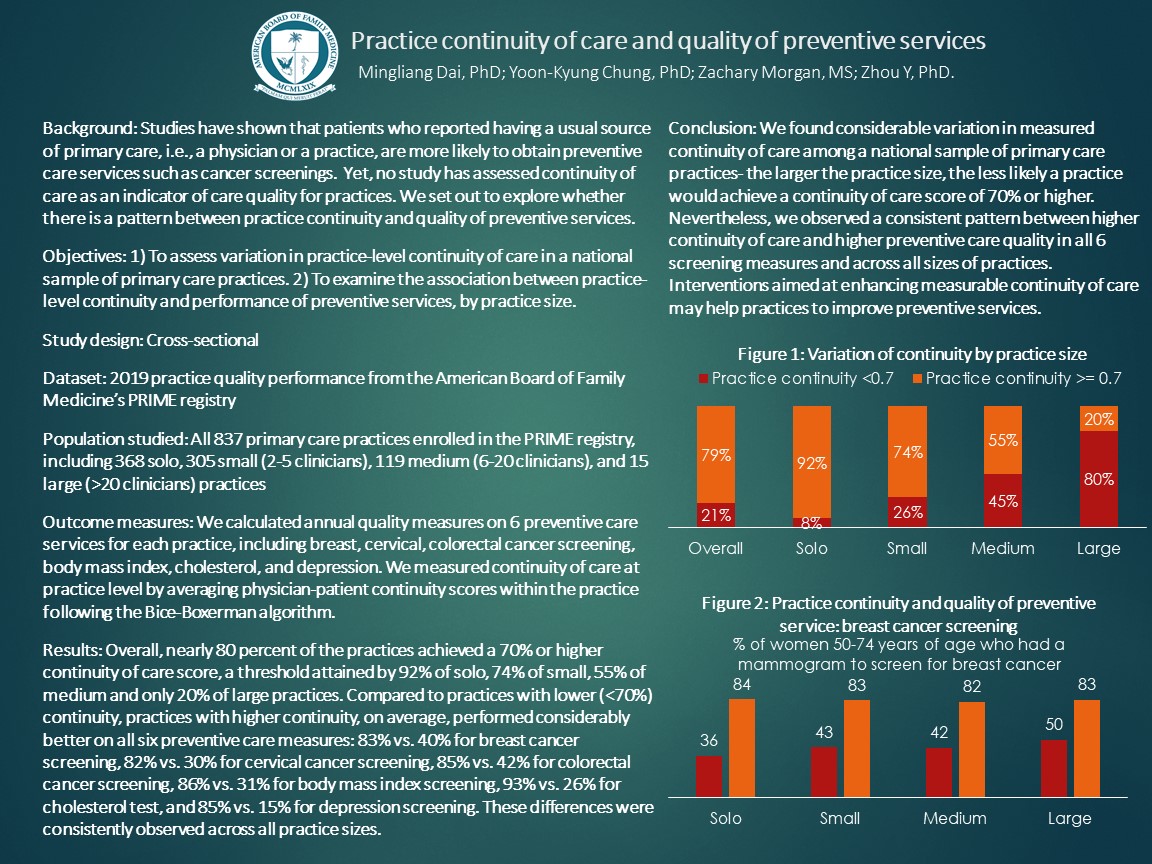PCR055: Practice continuity of care and quality of preventive services
Mingliang Dai, PhD; Yoon-Kyung Chung, PhD; Zachary Morgan, MS; Zhou Yang, PhD
Abstract
Objectives: 1) To assess variation in practice-level continuity of care in a national sample of primary care practices 2) To examine the association between practice-level continuity and performance of preventive services, by practice size.
Study design: Cross-sectional
Dataset: 2019 practice quality performance from the American Board of Family Medicine’s PRIME registry
Population studied: All 837 primary care practices enrolled in the PRIME registry, including 368 solo, 305 small, 119 medium, and 15 large practices
Outcome measures: We calculated annual quality measures on 6 preventive care services for each practice, including breast, cervical, colorectal cancer screening, body mass index, cholesterol, and depression. We measured continuity of care at practice level by averaging physician-patient continuity scores within the practice following the Bice-Boxerman algorithm.
Results: Overall, nearly 80 percent of the practices achieved a 70% or higher continuity of care score, a threshold attained by 92% of solo, 74% of small, 55% of medium and only 20% of large practices. Compared to practices with lower (<70%) continuity, practices with higher continuity, on average, performed considerably better on all six preventive care measures: 83% vs. 40% for breast cancer screening, 82% vs. 30% for cervical cancer screening, 85% vs. 42% for colorectal cancer screening, 86% vs. 31% for body mass index screening, 93% vs. 26% for cholesterol test, and 85% vs. 15% for depression screening. These differences were consistently observed across all practice sizes.
Conclusion: We found considerable variation in measured continuity of care among a national sample of primary care practices- the larger the practice size, the less likely a practice would achieve a continuity of care score of 70% or higher. Nevertheless, we observed a consistent pattern between higher continuity of care and higher preventive care quality in all 6 screening measures and across all sizes of practices. Interventions aimed at enhancing measurable continuity may help practices to improve preventive services.

Jack Westfall
jwestfall@aafp.org 11/20/2021primary care measures that matter. nice work on one of the 4 Cs of primary care. thanks for sharing at NAPCRG